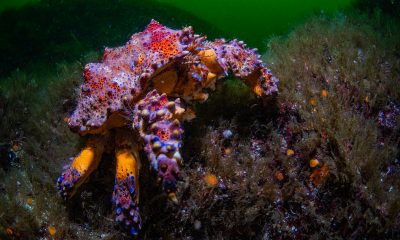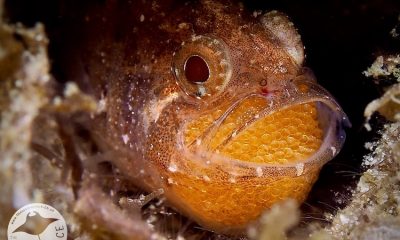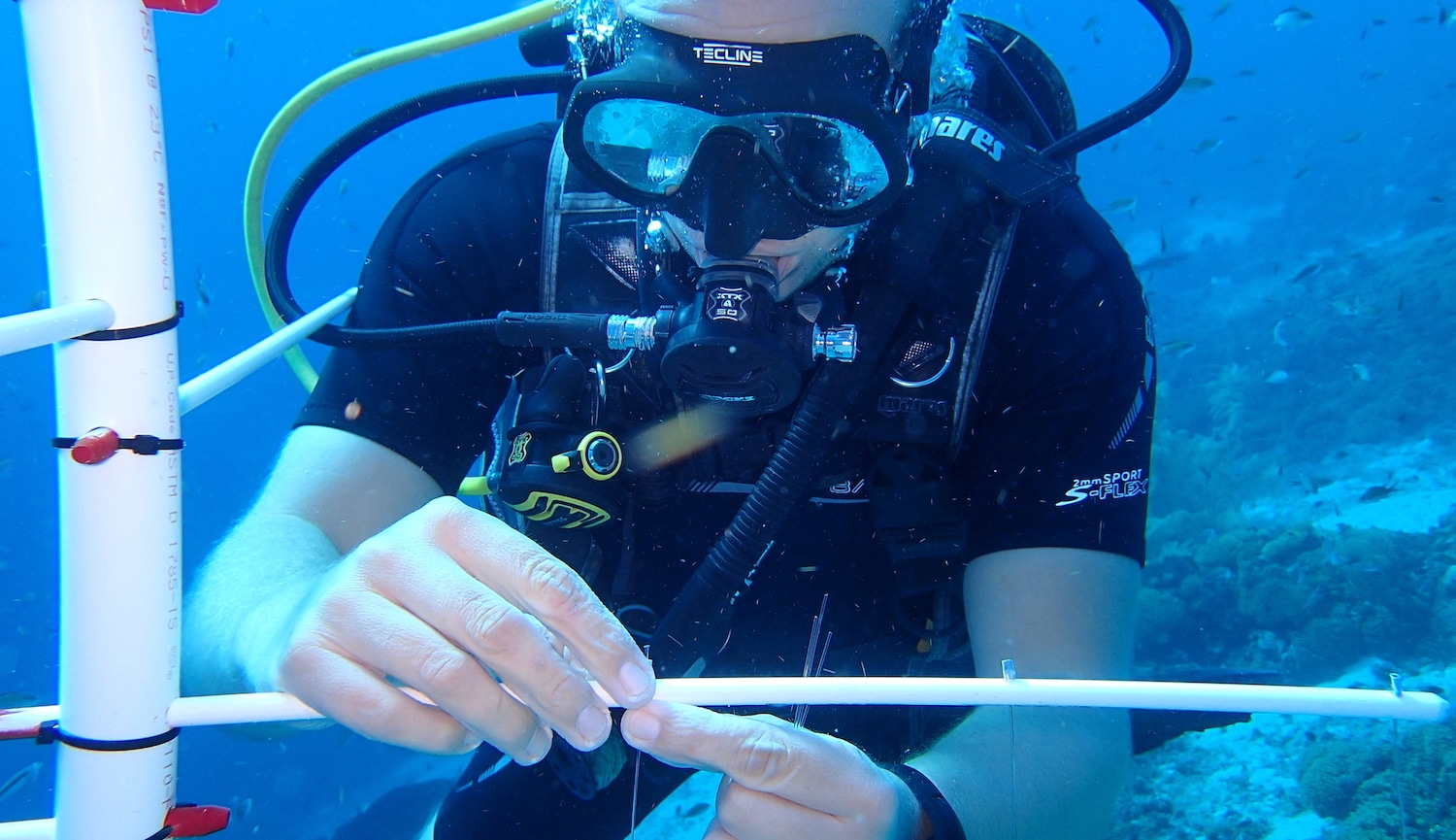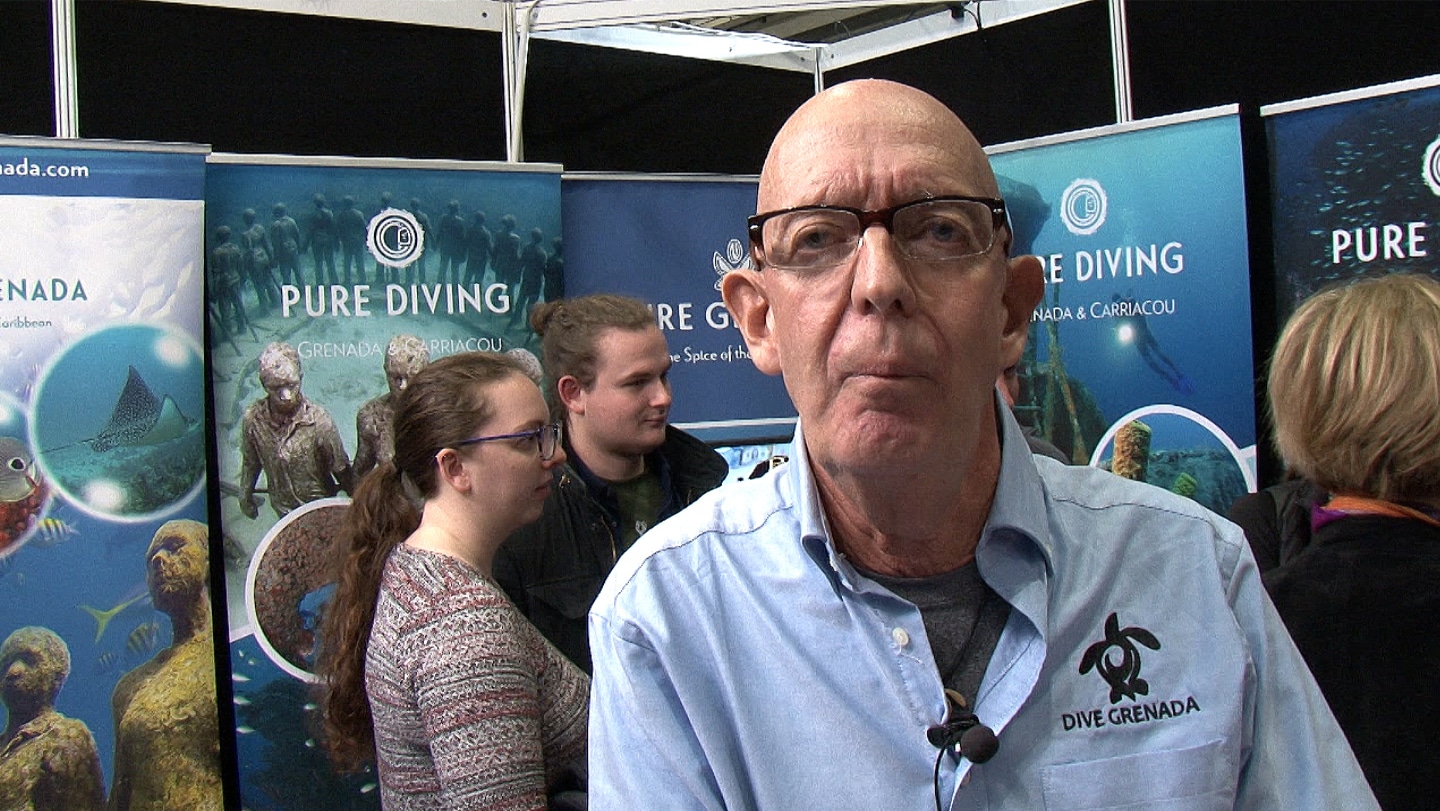News
Federal permit issued to create artificial reef in Canadian waters
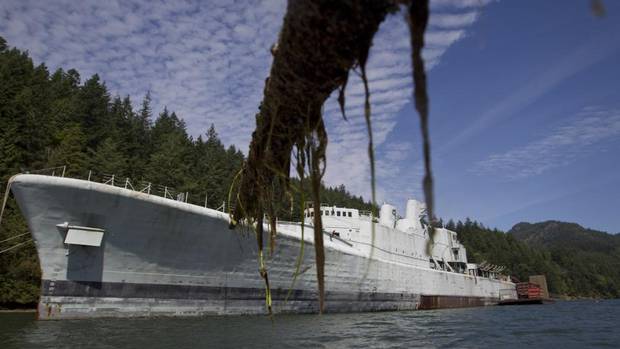
Environment Canada has issued a permit allowing a group to sink the former warship HMCS Annapolis to create a diving destination and artificial reef on the West Coast of British Columbia. However, not everyone is happy about the project’s go ahead.
Opponents, who for several years have been trying to stop the scuttling, say the ship poses a pollution hazard, and Halkett Bay Marine Provincial Park is the wrong place to scuttle it.
But Howard Robbins, president of the Artificial Reef Society of B.C., said the Environment Canada permit shows the ship is clean and won’t pollute the bay on Gambier Island, just a short boat ride from Vancouver. He’s confident a provincial permit will be issued soon, which would complete all the paperwork needed to blow holes in the vessel and sink it. That has been the group’s dream since it got the retired destroyer escort from Canadian Forces in 2008.
“We now have all of our federal authorizations in place. Next will be our park use permit, which will be issued shortly, and at that point we are fully compliant with both governments and we will plan our sink accordingly,” Mr. Robbins said earlier this month.
He said after years of battling opponents and meeting government requirements, he believes all the major hurdles have been cleared, although a marine contractor who worked on cleaning the ship has an outstanding financial claim that needs to be dealt with.
“We’re in talks right now to get the financial matter resolved,” Mr. Robbins said. “Once that’s done we should be good to go. We’re inching our way closer to the sink date right now.”
He said the ship should go down later this year. However, he’s made similar predictions several times in the past, only to have the date delayed while regulatory conditions were met.
The project has long been under attack by environmental groups and local residents who object to Halkett Bay becoming a graveyard for the 50-year-old Annapolis. The Artificial Reef Society had to undertake a massive cleanup effort on the ship, with 1,000 volunteers putting in more than 17,000 hours of work, in addition to the efforts by professional contractors.
“It’s been a very complicated project on many levels but we’ve been able to navigate all of it successfully to the point where we are now,” he said.
Mr. Robbins claims the ship, once sunk, will create an artificial reef on a section of ocean floor that is largely featureless.
“The Annapolis provides something that is not available in Halkett Bay right now and that’s a complex marine habitat,” he said.
But Gary MacDonald, a spokesman for the Save Halkett Bay Marine Park Society, said his group will ask Environment Canada for a hearing to contest the permit because the ship is a pollution threat.
In July, Environment Canada received a consultant’s report that declared the vessel was free of interior insulation and other contaminants, but Mr. MacDonald rejects that report, saying it was written by a lawyer, not an environmental scientist. “We want to see an independent test report that shows the ship is actually clean,” he said.
Mr. MacDonald is also pressing ahead with a petition to the Supreme Court of British Columbia. In that action, filed last week, the group seeks an order requiring the provincial government to stop the sinking, arguing it would violate the Park Act to put a wreck down in a marine park.
Christianne Wilhelmson, of the Georgia Strait Alliance, said there are deep concerns about artificial reefs in general.
“Continuing to sink these ships when we have so many outstanding questions is reckless,” she said.
Although divers maintain sunken ships soon become flourishing reefs with fish species moving into the nooks and crannies, there has been no long-term environmental assessment.
“Nobody is monitoring the other artificial reefs that were created from ships to our knowledge,” she said. “So to me this says we are continuing to dump things into the ocean without looking at the long-term impacts on the environment.”
Source: www.theglobeandmail.com
Gear News
Introducing the TR-80, IR-50 and CS-30 Regulators from DYNAMICNORD

Whether you are a beginner or a professional diver – with the three new main regulators from DYNAMICNORD, everyone will find their favourite regulator. They all look super stylish.
Excellent performance with the TR-80
Quality and performance are the be-all and end-all for regulators. It is not for nothing that the TR stands for Tec Reg. The innovative design of the TR-80 guarantees absolute reliability – even in ice-cold waters.

Perfect breathing effort at 0.8 J/l / certified for diving in waters below 10 degrees / structural design made of solid brass for best cold protection / membrane-compensated design with dry seal of the first stage / reduced exhalation effort thanks to optimized exhalation membrane and bubble deflector / adjustable Venturi (dive/predive) and adjustment knob for individual inhalation comfort / innovative design of the front cover prevents free-flow in strong currents or when diving with scooters / design made of sandblasted brass, matt chrome finish / 2 HP and 4 LP outlets / mouthpiece made of high-quality, anti-allergic silicone for maximum comfort.


Amazing underwater adventures with the IR-50
The IR-50 is the top regulator for advanced and experienced divers. Natural breathing is the essence of this regulator.

Ideal breathing effort at 0.8 J/l /certified for diving in waters below 10 degrees / compensated membrane / adjustable venturi (dive/predive) and adjustment knob for individual inhalation comfort/ outlet valve and deflector for minimum exhalation effort and reduction of bubbles on the face / design made of sandblasted brass, matt chrome finish / 2 HP and 4 NP outlets / mouthpiece made of high-quality, anti-allergic silicone for maximum comfort.


The Workhorse – our CS-30
For diving centres and diving beginners – the workhorse stands for strong construction, reliability and robustness. Perfect for your training.

Optimal breathing effort at 0.8 J/l /recommended for diving in waters above 10 degrees / non-compensated piston / adjustable venturi (dive/predive) / outlet valve and deflector for minimum exhalation effort and reduction of bubbles on the face / design made of sandblasted brass, matt chrome finish / 1 HP and 3 NP outlets / mouthpiece made of high-quality, anti-allergic silicone for maximum comfort.


Octopus OP-30
The OP-30 is the ideal addition to all DYNAMICNORD regulators. It is identical in construction to the CS-30.

The TR-80, IR-50, CS-30 (DIN & INT) regulators and the Octopus OP-30 are available from DYNAMICNORD dealers and in the online store.
DYNAMICNORD – Your Outdoor Companion.
Marine Life & Conservation
Paul Watson Released as Denmark Blocks Japan’s Extradition Bid

Renowned anti-whaling activist Paul Watson has been released from custody in Greenland after spending five months in detention. Denmark’s Justice Ministry rejected Japan’s request for his extradition, citing insufficient guarantees that his time already served in custody would be credited against any potential sentence.
The 74-year-old Canadian-American was arrested on July 21 in Nuuk, Greenland’s capital, when his ship docked to refuel. His arrest was based on a 2012 Japanese warrant related to a 2010 encounter in Antarctic waters. Japan alleged Watson obstructed operations and caused damage to a whaling research ship during efforts to disrupt illegal whaling. Watson has consistently denied these claims, maintaining his commitment to marine conservation.
Denmark, which oversees extradition matters for Greenland, concluded that while the legal conditions for extradition were met, the lack of assurances from Japan regarding time-served credit made extradition untenable.
In a video shared by his foundation, Watson expressed gratitude and relief, saying, “After five months, it’s good to be out… and good to know they’re not sending me to Japan.” He added that the most difficult part of his time in custody was being separated from his two young sons.
Watson is a pioneering figure in marine conservation, known for founding the Captain Paul Watson Foundation in 2022 after decades of activism with the Sea Shepherd Conservation Society. His bold efforts to defend marine life have earned him widespread support, including from celebrities and conservationists. His work has also been featured in the acclaimed reality TV series Whale Wars.
Watson’s lawyer, Jonas Christoffersen, praised the decision, stating, “We are happy and relieved that Paul Watson is now free.” He added that Watson is eager to reunite with his family and continue his vital work.
The arrest occurred while Watson’s vessel, the M/Y John Paul DeJoria, was en route to the North Pacific with a team of 26 volunteers to intercept a Japanese whaling ship. His foundation described the arrest as politically motivated and emphasized that Watson’s actions were focused on ending illegal whaling practices.
Japan resumed commercial whaling in 2019 after leaving the International Whaling Commission, asserting that whale meat is a cultural tradition. Conservationists, however, continue to challenge these practices, highlighting their impact on marine ecosystems.
Despite the challenges, Watson remains steadfast in his mission to protect marine life and bring attention to whaling practices. His dedication to ocean conservation has made him a globally respected advocate for the environment.
-

 News2 months ago
News2 months agoIconic SS United States to become the World’s Largest Artificial Reef
-

 News3 months ago
News3 months agoBook Review – 52 Assignments: Underwater Photography
-

 Gear News3 months ago
Gear News3 months agoDYNAMICNORD – New German diving brand enters the British market
-

 News3 months ago
News3 months agoExploring Cenote El Pit: A Diver’s Dream
-

 Gear News3 months ago
Gear News3 months agoTry BARE drysuits (and maybe even win one!) this Friday with Sea & Sea at North West Dive Fest
-

 Marine Life & Conservation3 months ago
Marine Life & Conservation3 months agoBook Review: Coral Triangle Cameos
-

 Blogs2 months ago
Blogs2 months agoDive the Egyptian Red Sea this Autumn with Regaldive
-

 News3 months ago
News3 months ago2024 Ocean Art Underwater Photo Competition Announced



